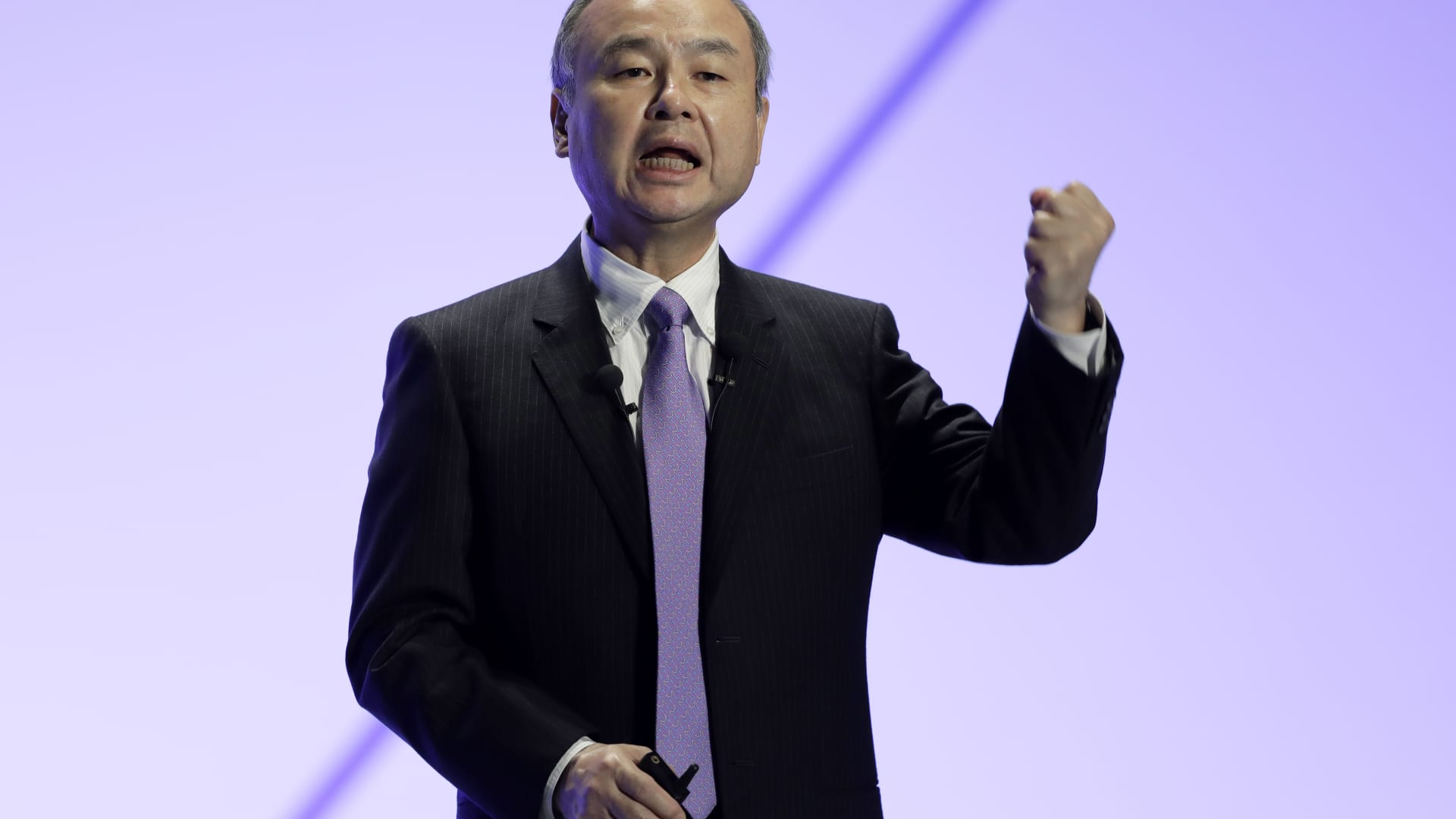SoftBank reported a surprise loss in the first quarter covering April-June, despite an investment gain from its massive tech-focused Vision Fund.
Here’s how the company did:
- The SoftBank group reported a net loss attributable to shareholders of 477.6 billion yen ($3.3 billion). This came in well below a Refinitv analyst estimate anticipating a 75 billion yen profit, but was much softer than the steep 3.16 billion yen loss that the company logged in the same period of last year.
- SoftBank’s Vision Fund, which is closely watched by investors as an indicator of health in the tech sector, booked an investment gain of 159.8 billion yen ($1.1 billion). It benefited from investments in shares of the company’s subsidiaries, including chip design giant Arm.
Last quarter, SoftBank recorded a $32 billion loss at its Vision Fund investment arm, which has backed some of the largest names in technology today from Uber to South Korean e-commerce titan Coupang.
The company at the time said that, despite having exited its remaining stake in Uber, it still logged losses from investments such as SenseTime, a Chinese artificial intelligence company, and GoTo, an Indonesian ride-hailing and e-commerce firm.
The tech conglomerate, which engages in venture capital investing through its Vision Fund, has had its fair share of ups and downs. It halted new investments and offloaded its holdings of ride-hailing giant Uber, and trimmed its stake in Alibaba.
Investors will be looking for clues on how SoftBank has benefited from the rise in technology stocks these past few months. Major technology names such as Alphabet and Amazon have seen their share prices climb since the start of the year, as investors bet on an end to a relentless rise in interest rates.
Also in focus will be whether SoftBank has benefited from swelling demand for artificial intelligence following the rise of ChatGPT, a popular AI chatbot owned by Silicon Valley startup OpenAI. SoftBank has shied away from making new investments amid a grim market environment. But the company has made no secret of its desire to capitalize on the “AI revolution.”
In a shareholder meeting in June, CEO Masayoshi Son said that SoftBank plans to shift from “defense mode” to “offense mode.”
“In the past few years, we focused on being [on] ‘defense.’ Three years ago, we didn’t have a lot of cash on hand. But because we have been in defense mode, we have built our cash on hand to five trillion yen ($35.3 billion),” Son said. “We are ready to shift to offense mode. I am excited about that.”
Meanwhile, market players are keenly watching for any commentary from SoftBank on the initial public offering of Arm, the chip design company it acquired in 2016 for $32 billion.
SoftBank was originally meant to sell Arm, whose chip architectures can be found in 99% of all smartphones, to Nvidia for $39 billion, but it called off the deal after facing intense backlash from regulators, who flagged concerns over competition and national security.
During last quarter’s earnings call, the firm’s Chief Financial Officer Yoshimitsu Goto said that SoftBank has a number of companies ready to go public, which are valued at a combined $37 billion. He did not name these companies.
The brainchild of founder Masayoshi Son, SoftBank’s Vision Fund comprises Vision Fund 1 and Vision Fund 2 and invests in high growth stocks. Both portfolios have faced headwinds from rising interest rates globally causing investors to sell out of riskier equities such as tech.
Last year, faced with mounting losses, Son’s key ally and top SoftBank executive Rajeev Misra stepped back from some of his roles at the company. Misra was instrumental in the early days of the Vision Fund, which was launched in 2017.
SoftBank has a chequered track record with its investments into technology over the years.
The company notoriously backed U.S. office rental startup WeWork, which at one point was worth as much as $47 billion before SoftBank leapt to rescue the firm in a deal that sharply devalued it. It also took a stake in crypto exchange FTX, which last year collapsed owing investors billions after facing U.S. charges of fraud.
— CNBC’s Arjun Kharpal and Sheila Chang contributed to this report.
This is a breaking new story. Come back for more updates.
